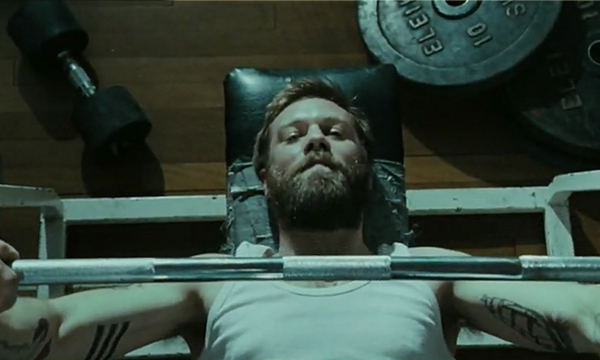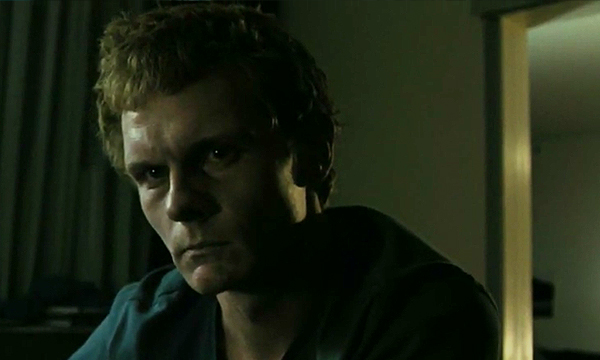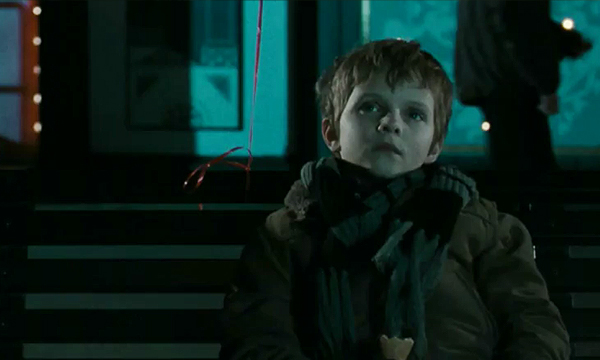I wonder why sense of measure is so uncommon among filmmakers. Sometimes I cannot help feeling classic Hollywood, despite its being hopelessly commercial in the intentions, had more sense of measure in its less accomplished works than many specimens of authorial film-making at their best. Sense of measure means having the guts, when necessary, to leave the audience to figure out things on their own instead of giving away everything in a cheapening way.
Submarino by Thomas Vinterberg represents an explanatory example of what I mean when I say it happens that a filmmaker has promising material but no sense of measure at all. I have to confess, before I go on, that I have not read the book by Jonas T. Bengtsson on which the film is based. It doesn’t matter though, because it’s not uncommon, even when the source is not perfect, that the adaptation for the screen turns out to be pretty good, sometimes even eclipsing its original.



Two siblings have to take care of their baby brother while their mother drinks herself into unconsciousness. Left to themselves, the children cannot manage to keep things under control and the baby dies. Years later the accident, Nick (Jakob Cedergren) and his brother (Peter Plaugborg) are adults with lives of their own. Nick has a drinking problem, like his mother before him, has no stable relations and lives in a shelter. His conscience is still tortured by what happened to his baby brother and his drinking is a way like any other to forget. His brother, now a widower, is a drug addict with a small child, Martin, to take care of. Both brothers seem to have not recovered from their childhood trauma; both ended resorting to alternative means of moral support, letting their lives go adrift.
The film depicts quite bluntly an existential misery that leaves no space for hope of any kind. The weak, children especially, are the ones that are bound to suffer the most. This hopeless sense of injustice affecting most of all innocents, without possibility of true redemption, is inherent to our society. The bleak and stark representation of it is what probably above all appealed watchers that affirmed Submarino is a stunning piece of cinema. But looking closely, Submarino is not a truly stunning piece of cinema. Vinterberg, that owes part of his glory to the fact he was together with Von Trier founder of the Dogme 95 manifesto, chooses to follow standard guidelines both for his storytelling and for his aesthetics. The style is of a gritty polishedness that is very popular among a certain kind of films, but without being truly impressive. The washed-out cinematography and the use of soundtrack are also quite commonplace and definitely add a lot of the “already seen that” and “all films look the same” feel you don’t want to experience when you’re watching a film. The overlapping stories seen from different perspectives are not well justified by the material – a film that should focus more on the insight – and they appear to be more futile gimmicks to amaze the spectator rather than coherent means to offer a deeper analysis of the characters and their motives. Some elements are too much insisted on and banally given away, when it would have been more profitable to leave them subtly unsaid or only partly suggested. Multiple scenes, for example, eloquently show Nick’s brother’s drugs addiction in its more trivial aspects. Not even Trainspotting – which anyway seems a great influence to those scenes – insisted so much and in such a pointless manner on the drugs motif, and Trainspotting was anyway by far a more imaginative and originally conceived film. Vinterberg doesn’t know when and how to stop, what to show and what to leave off screen for the sake of the final effect. In the end, Submarino looks more like an accomplished although not flawless assignment than like a significant representation of life in film form.
What saves Submarino from forgettableness is the main actors’ performance. Both Cedegren and Plaugborg are solidly believable in their roles. Cedegren’s acting, minimal and yet poignant, is especially remarkable. Despite the repetitiveness of some scenes and the lack of ideas turning Submarino into cinematic mannerism, they manage to keep the viewer interested thanks to their acting.
If a director like Thomas Vinterberg has no sense of measure for you, what do you think of directors like Ulrich Seidl, Gaspar Noe, Philippe Grandrieux, Takashi Miike or Harmony Korine?
Their style is too different, I wouldn’t put them in the same league. Also, film-makers like Miike are intentionally extreme, to the point of parody, while Vinterberg is not.
Halló Pu, var að pæla, hvað heitirðu fullu nafni? Mjög athyglisverð gagnrýni.
Pu,you can translate the comment by Oliver?
I was asking for the critic’s full name because I thought her critique was little bit weird. This movie blew me away and I couldn’t disagree more with the critique.
I didn’t reply to your question earlier because I didn’t notice the comments above, those after my first reply, that is. But in any case, I don’t think a full name is relevant, Oliver. A review represents the reviewer’s opinion and of course you are free to disagree and express your own view, if you wish. I have explained my reasons with enough coherence and in detail, a “full name” is not needed as a supportive point, is it?
For what it’s worth Oliver, I couldn’t disagree with Pu’s review more either.
PS: I should mention I just watched Submarino because I saw Vinterberg’s new film, The Hunt, a few weeks ago. The latter is excellent.